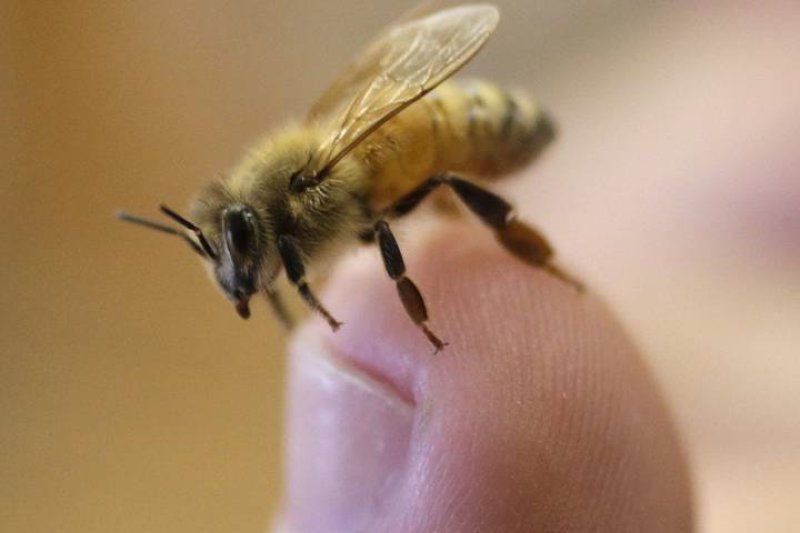It’s not easy being a bee these days. Apis mellifera, the Western honey bee, is crucial to agriculture worldwide but faces a growing number of pests and pathogens against which beekeepers have few weapons.
But the bees themselves may be showing us the way forward: New research suggests the foraging insects may obtain protection against some viruses by consuming fungi, then returning to the hive to spread its medicinal value.
…
While the science and economics of saving honey bees can be controversial, no one can deny that the insects are facing a host of threats …. Much of the blame falls on the aptly-named parasitic mite Varroa destructor, which …. has …. been associated with the spread of at least ten viruses that affect honey bees ….
Foraging honey bees, however, have been observed consuming mycelium, the thread-like filaments found on many mushrooms. Like other fungi, mushrooms can produce …. antibacterial and even antiviral compounds. Researchers wondered whether forager bees eating the mycelium and then returning to the hive to share it with other bees might provide some antiviral protection for the entire colony.
To find out, a team cultivated several fungi species known to produce antiviral compounds and fed extracts of their mycelium to honey bees, initially in a lab environment. Several species appeared to reduce the amount of pathogens present.
Read full, original article: Honey Bees May Fight Off Viruses With Help From Fungi































